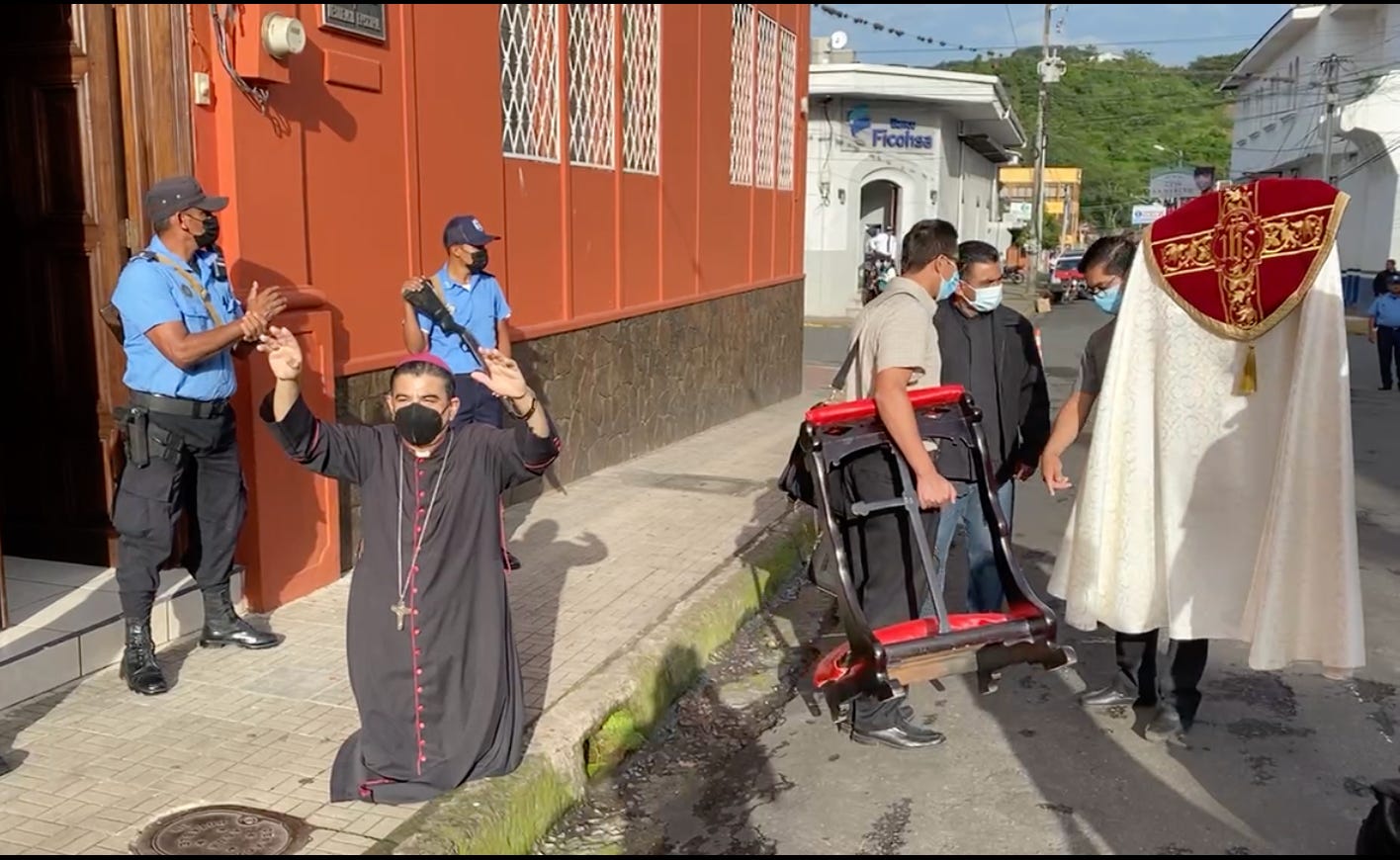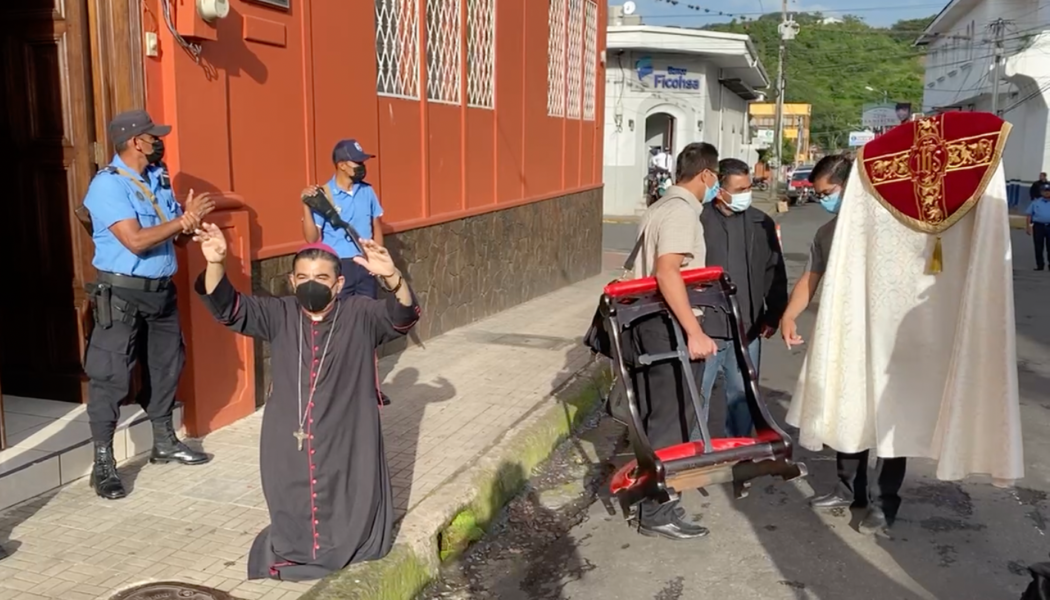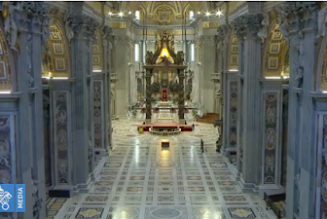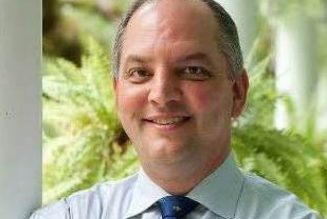Happy Friday friends,
JD and I spent much of this week on the road, mostly at a canon law conference. It was, for me, a wonderful chance to spend a few days with friends and classmates, and to revel in the minutiae of procedural law — which is as great a way to take a mental deep breath and recover my sanity as I can ask for.
On the back end of that trip, we had a spare evening in St. Paul, Minnesota, and we thought it would be fun to find a bar, and record our weekly podcast there. We mentioned that plan on the show last week, in our Tuesday newsletter, and on Twitter, in case any Pillar readers were in the area and wanted to grab a beer.
Honestly, I thought maybe four or five people would turn up and it would be fun.
But by Tuesday afternoon, we were getting panicked emails from Skinner’s Pub, asking who we were and what we were up to, since the bartenders had been inundated with calls about our visit. Oops.
In the end, some 50-60 people showed up. It was incredible. We had a great time, met some of the best people you could imagine, saw a few old friends, and there were some surprise attendees as well. We did record the show, and I think the audio files have given poor Kate something of a nightmare —but it will be published soon.
All this to say: thank you.
Thank you to everyone who came, and especially to the incredibly generous listener who picked up the tab for our table and left before we even knew about it — you know who you are.
Thank you to Skinner’s Pub for being so spontaneously hospitable. And thanks to St. Paul for being clearly the best Catholic city in the country — if you disagree, tell me and maybe we’ll try this live show thing again somewhere else, and we’ll see what happens.
And thanks to all of you who have made The Pillar so much more than a job for us, it has become shockingly clear to me that we have a real community in a common endeavor in the life of the Church. We are only able to do this because of you. Thank you, really.

As of yesterday, police have a Catholic church surrounded in the Nicaraguan city of Sébaco. They have been laying siege to the parish since Monday, while the pastor and five parishioners remain inside.
Our correspondent Edgar Beltrán talked to Fr. Uriel Vallejos inside Divine Mercy parish, where he and his parishioners are running out of food and the power has been cut off. The priest says that several of his parishioners were injured during protests which sprang up in response to the siege, including a lector who lost an eye after he was shot with a rubber bullet. Others were tear-gassed.
—
In India, the archbishop who resigned last week in the middle of the liturgical crisis in the Syro-Malabar Catholic Church has said he was given 24 hours to quit by the apostolic nuncio or “the procedure to oust me would begin.”
The archbishop had dispensed his priests from having to face ad orientem during the Eucharistic liturgy as the Syro-Malabar Church brings in a controversial new uniform mode of celebrating liturgy, known as the Holy Qurbana. While he said in his letter he’d been given no reason why the pope was demanding his resignation, he had no doubt that had he brought in the liturgical changes he could have kept his job.
“I know that history wouldn’t be kind to me for abandoning the community of faithful who were entrusted to me at a time of crisis,” the archbishop wrote. “My thought that if I did not resign it might further weaken the archdiocese – due to further actions [to remove him] – led me to give my resignation.”
—
—
According to figures out this week, the number of legal abortions in Poland fell by 90% after the Constitutional Tribunal declared a 1993 law allowing abortion for severe and irreversible disability or a life-threatening incurable disease was unconstitutional.
The decision was every bit as controversial in Poland as the Dobbs decision handed down by the Supreme Court over here earlier this summer: sparking mass protests and attacks on the Catholic Church: protesters disrupted Masses, daubed graffiti on Church property, chanted slogans at priests, and vandalized statues of Pope St. John Paul II.
—
Staying with the work to be done: post Dobbs, doctors, lawyers, and legislators are all wrestling with questions about language, intention, and what it means to protect the life of a mother. John Bruchalski has practiced obstetrics and gynecology since 1987 and has spent the last three decades asking himself these same questions.
Bruchalski started his career performing abortions in the belief this was the compassionate and liberating thing to do, until he had a dramatic conversion. He spoke to Charlie Camosy about “life-affirming” medicine, treating both the mother and her child as patients, and how he, as a doctor, sees some of the hardest of hard cases which have become flashpoints in the post-Dobbs debate.
It is a very serious conversation, and they try to think through the unthinkable hard cases and ask what compassion really means, and demands, in those situations.
—
I’m not sure how many of you follow European football, or affect to like it to look cool, but a story from Italy’s Serie A league caught my eye this week.
UC Sampdoria are a solidly middle of the pack club with a decent enough fan base. For a crude analogy, they are a kind of San Diego Padres. And they are currently shopping for new owners, after their former president (and still owner), the film producer Massimo Ferrero was arrested last year for financial crimes.
Well, it turns out, Raffaele Mincione is very much in the hunt to buy the club through his company WRM. He’s not the leading bidder, alas, but he is widely considered to be the second most credible suitor for what would be a prestige asset.
I flag this because it’s easy to get tunnel vision around the Vatican financial trial and to see the whole thing as a bit of a village farce, and the characters involved as somewhat clownish. Don’t.
However… thought provoking Mincione’s relationship with Gianluigi Torzi might be, and however… selective his choice of investments for the Vatican might appear to have been, Mincione is not a joke, neither is his career, and neither are the charges he faces in Vatican City.
Just bear that in mind when hearings get going again next month.
—
—
A group of senior Christian theologians and academics — Catholic, Orthodox, and Protestant — have written to the leadership of the World Council of Churches asking them to suspend the Russian Orthodox Church’s membership of the body unless its leadership abjures the Russky-mir philosophy which has been used to justify the invasion and continued war in Ukraine.
They make a compelling and systematic case for what they argue:
“The unceasing shelling of countless settlements, the torture of civilians and prisoners of war, the rape of women and children, the killing of innocent civilians, the deportations, the separation of hundreds of thousands of children from their families and their deportation to Russia, the indoctrination of school children and their prohibition to speak in their native language in the temporarily occupied territories, – all these crimes are endorsed by the Russian Orthodox Church and by Patriarch Kirill himself in the name of defending Christian values and the family.”
As we have been reporting since before the Russian invasion began, you simply cannot understand the war in Ukraine unless you understand the religious dimension.
The letter, which you can read here, is another eloquent presentation of how truly terrible what is being inflicted on the people of Ukraine is right now. But it is also another example of the unexpected ripple effect of that war through the ecumenical world.
Keep watching this space, we certainly will.
—
We reported this week that the Diocese of Knoxville has made some controversial arguments in the course of a lawsuit currently being heard in Knox County.
The plaintiff’s lawyer called it a remarkable move by the diocese. While the Church respects the right of victims to speak openly about their own cases, it is equally careful to respect their privacy, he pointed out. Knoxville’s own diocesan policy, issued in 2020, requires that in diocesan processes, “the privacy of a victim shall be honored,” and that “the right of a victim to maximum privacy should be guarded.”
As we have reported before, the lawsuit is being brought against the diocese by a former parish organist in the diocese, who says he was raped and sexually harassed by a diocesan employee and seminarian in 2019.
He also argues that a diocesan investigation into that allegation was impeded by Knoxville’s Bishop Rick Stika, and that Stika accused the alleged victim of being the real rapist — both of which Stika has previously confirmed to us.
Arguing that a potential rape victim should be publicly named in order to sue the diocese wasn’t the only controversial legal move by the bishop, however.
Lawyers for Stika also claimed in court that records of a Vatican-ordered investigation into his leadership of the diocese are protected by the clergy-penitent confidentiality privilege recognized in Tennessee law — the same legal protection which covers the seal of confession.
Stika’s attorney again argued that asking about a Vos estis investigation into the bishop is “similar to asking a priest whether or not someone has come for confession.”
I’ve practiced canon law for a few years, and participated in more than a few penal investigations and cases, and I can honestly say I have never heard that argument before, and I don’t know of any canon lawyer who would make it.
Apart from appearing canonically spurious, it could appear an awful lot like an attempt to use the sacred safety of the confessional to hide administrative acts by a bishop — simultaneously abusing the sacrament and putting its civil legal protection at risk.
As it happened, the plaintiff’s lawyer cited a July 2019 Vatican rescript, which clarified specifically that “the pontifical secret does not apply” to Vos estis investigations or “the execution of enforceable requests of civil judicial authorities.” The judge agreed that if the pontifical secret didn’t apply, the sacramental seal certainly didn’t.
Arguing to name possible rape victims in court and invoking protections for the sacraments to protect the bishop’s privacy are just the latest controversial decisions to come out of the Knoxville diocese.
But while bishops’ resignations are readily demanded by Rome for seemingly much less in other places, Bishop Stika has told his own clergy he’s had assurances he’s not going anywhere. It’s not clear why Rome seems so relaxed about Stika’s case, and it’s worth asking whether American members of the Dicastery for Bishops, like Cardinal Blase Cupich, have had occasion yet to weigh in on the case.
If the civil court does get access to diocesan records of any Church investigation into Stika’s leadership, it might become clearer why the Vatican seems to have so much faith in him. Or, if any such report is damning, it might become even more of a mystery.
Catch up on the whole story here.
—
More and more dioceses are publishing implementation plans for Traditionis custodes, and cutting drastically the times and places the Extraordinary Form of the liturgy can be celebrated.
This has, as we’ve reported, left families, communities, and in some cases entire parishes facing a traumatic upheaval. Bishops, in places like the Archdiocese of Washington and the Diocese of Arlington, have stressed that they are acting to bring local norms into line with Pope Francis’ desires for the liturgy. And that is fair enough — when the pope gives a lead, the local bishops rightly want to follow.
Many Catholics attached to the EF liturgy feel they have been driven out to the literal margins of their dioceses. Given Pope Francis’ repeated exhortations about pastoral care on the peripheries, you might expect to find their bishops waiting to meet them there, but that doesn’t seem to be happening.
In most cases, bishops have declined the chance to announce their plans to these communities in person, allowing local pastors to deliver the bad news. This is, in some places anyway, a double problem, in as much as the pastors themselves feel they are being treated as a “suspect class” by their bishops in the new policies — being required to submit written assurances they don’t reject Vatican Council II and even ask permission to celebrate the Ordinary Form ad orientem.
One priest I spoke to put it this way:
“We’ve basically been told there’s something wrong with us, as a generation. There’s something suspicious about our formation, our priesthood, and the people we are close to. It’s a lot to swallow. We aren’t the generation who created the abuse crisis, or covered it up. We didn’t bankrupt the Church or close all the schools. But somehow we are the problem.”
For myself, I’ve never actually been to an EF Mass and cannot claim some privileged insight into how those communities live the faith.
But it seems self-evident to me that if bishops are sincere in their insistence that they believe “the vast majority” of these Catholics are sincere, devout, vibrant, exemplars of the faith, they have a responsibility to care for them personally at a time when they feel unloved, unwelcome, and unwanted in the diocese.
If bishops aren’t willing to go to the margins to comfort those members of their flock who are clearly wounded, it’s probably inevitable that they will conclude that words like “pastoral” and “unity” are just words, and that driving them out was the real point all along.
—
—
As a final note, you probably heard the sad news that Vin Scully died this week. The legendary Dodgers broadcaster was maybe the exemplar of an era baseball is rapidly leaving behind.
Measured, knowledgeable, unhurried, and wholly one with the game, Scully’s greatest talent was his ability to bring the whole ballpark through the radio.
His calling of the game seamlessly wove around the noise of the crowd, the sounds of the game, and the natural ebb and flow of the action. He never talked over the action, and he was never just waiting for his turn to speak; he was in conversation with the whole game.
His was the voice of baseball for many, and he will be missed by all who love the game.
He was also a lifelong Catholic. With thanks to Dodgers fan and Pillar reader Christine, who sent this to me this week, I now know he recorded a recitation of the rosary with his inimitable delivery.
I’ve never doubted there will be baseball in heaven, and I have every hope that if I make it there, I’ll find Vin calling the game.
See you next week,
Ed. Condon
Editor
The Pillar
Join Our Telegram Group : Salvation & Prosperity











